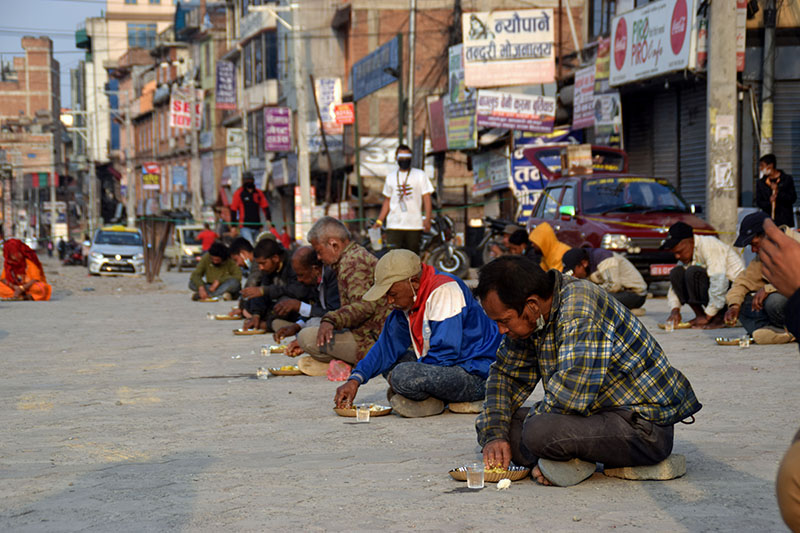

It has been around a month that Rupa BK of Janaki-6, Kailali has been without work with the implementation of measures taken to stem the spread of COVID-19.
As her income stopped, she is finding it hard to manage her kitchen. It has been days that the BK family is surviving on the minimum food. The BK couple, daily wage workers, is jobless.
She is worried to see foodstuff in her kitchen running out of stock. “I had managed a sack of rice as we heard that lockdown was being implemented,’’ she said innocently. She was using the term lockdown to the prohibitory order which reflects the general understanding of mass about prohibitory order as similar to the lockdown.
“My husband spends time playing with kids, and tells me not to worry, but how could I be that much of carefree of the current situation, of the family needs primarily of my children,” she said. Her concerns seem genuine as women are traditionally bound to manage the house.
The story of Tetarani Chaudhary of Janaki-4 is not unlike BK. As a single mother, she has the responsibilities of four children on her, and food in her kitchen is also running out of stock. Before the implementation of the prohibitory order, she was working for the house construction site.
In the beginning days, the Chaudhary family sought the help of neighbours to manage food which is not possible always. “We speculated that the Administration would enforce ‘shutdown’ for a week, but it is further extended and with this, we are struggling to manage our survival needs,’’ she said, hoping someone else to call her for work.
Dauli Saud and her family of Tikapur-8 have returned home after losing jobs in India following the second wave of the virus. Her return home was possible with the transportation fare managed by Nepali people in India.
Back home, Saud is finding it hard to support herself and her family without an income source. Neighbours back home provided rice.
“We have only a house to live in. We do not have a plot of land to grow vegetables or grains. There has been news that farmers have got their vegetables rotten without a market due to the pandemic. We will live on them if we get them,” she said in desperation.
Women rights activist Nirmala Kadayat viewed that it was natural for women to be worried about providing food to the family as women take responsibility for kitchen management. “Family members should be frugal during an economic crisis. They should not make unnecessary demands. Local government should look after the family in dire problems.” Neighbours should help each other in such a crisis, she said.
Shiva Charan Chaudhary, who teaches social science at Tikapur Multiple Campus, urged the concerned authority to provide vegetables that have been a waste without a market to those in need.
“We can help others by providing them whatever we have. It will give encouragement when we help others in crisis. During the crisis, we should seek ways for life by leaving all other work behind,” he suggested.